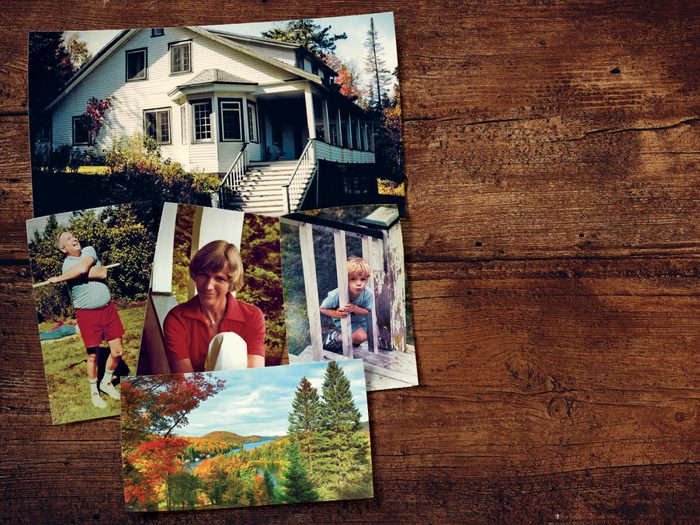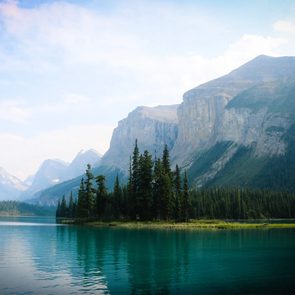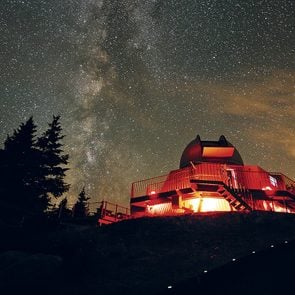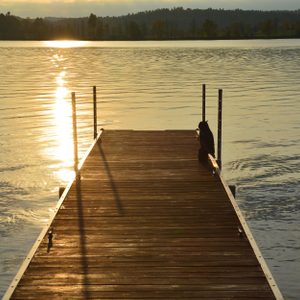How I Learned To Love Our Family Cottage—Chores And All

Instead of coming back to the cottage, Matthew Hague vowed to go anywhere else in the world. Here’s what changed.
I remember the exact moment when I decided that I would never go back to my family’s cottage ever again. It was August 2000. I was 16 and sick of our annual trips from Toronto to the dusty, drafty old place in Quebec’s Laurentian Mountains.
My grandfather was also getting to me. In my mind, he ran the place like a boot camp, setting out a strict daily regimen for me, my brother and our cousins. Between 6:00 and 7:00 a.m., we had to be out of bed and in the frigid lake for our pre-breakfast swims. Then, after choking back flavourless bowls of porridge, we played tennis, swam some more and did chores.
In the afternoons, as the adults had tea or cocktails, we were expected to sit silently and listen to their tedious chit-chat. We didn’t have cable TV.
We had to be in bed by 10:00 p.m. That might not sound rough, but to my 16-year-old self, it was torture.
Right before going up that year, I had seen a documentary about ritzy Palm Beach, Florida. It confirmed my suspicions that there were better places to spend a vacation. I was so dazzled that, one morning, post polar-bear dip, I cheekily announced to my grandfather that someday soon I would visit Palm Beach (with what money, I can’t say). I wanted to know how it felt to swim in warm water. I didn’t mean it as a direct, outright rejection of the cottage, but he took it as such. He scolded me for being rude. I’d betrayed a deep and offensive ingratitude for the beauty all around me.
I took his words as a challenge. Instead of coming back to the cottage, I promised myself I would explore the world, be my own person. The next summer was the first time in my life that I didn’t make the trek.
House History
My great-grandmother and her sister bought the cottage property in 1947 as a country escape from their home in Montreal. My great-grandfather had recently returned from the war minus a hand, and they wanted a place to relax and recover. The cottage was a turn-of-the-century house with a wraparound verandah, sash windows and a giant stone hearth.
My grandfather was a teenager when he started going up there. He was naturally self-disciplined, and I imagine him loving the early morning ice swims, a routine started by his father. I can also imagine him as the kind of teen who sincerely enjoyed eating porridge and doing chores. I don’t think he ever missed a single summer until he became too frail to travel, in his mid-80s.
During all of that time, very little changed at the cottage. As recently as the early 1990s, I can remember drawing our drinking water from an old wooden well in the forest behind the house. I had to attach a plastic pail to a metal chain and hand crank it into the ground. For a long time, the most up-to-date thing about the property was the small cedar bunkhouse that my grandfather built in the 1960s. Like the main house, it wasn’t winterized. But unlike the main house, it had post-war furniture and modern, if miniature, appliances. Tucked into the trees, it had a big window that framed a stunning view of the lake.
While my grandfather was always authoritarian, my grandmother radiated warmth. And the little cedar cabin was where she made a point of spoiling her grandkids. When my grandfather was out doing chores, she served Cap’n Crunch and Froot Loops—oatmeal be damned. Instead of asking us to rake the driveway, she’d read us books and lead us in crafts. As a signal that it was a good time to come over, she would hang a red towel over the cabin’s railing. My grandfather knew, of course, and didn’t approve. But my grandmother did it anyway. She was subversive in the name of sweetness, and I loved her for that.
Homecoming
When I was 25, I cycled from Toronto to Montreal as a fundraiser for the Toronto People with AIDS Foundation. When I arrived, in early August, the city felt roasting hot and I had booked an unairconditioned hostel room for myself and my boyfriend, who is also named Matthew. I suggested we escape the humidity by spending a few days at my family cottage, where I hadn’t been since I was a teenager. He had no idea what cottage I was talking about—even though we had been together for five years.
Driving up, I realized how many things in that seemingly immutable place had changed. The big old house had been given to an uncle, who had torn it down and built something new. Although the little cabin was still there and was where my grandparents were staying, they were much older and slower moving, so my grandfather’s once-strict routine had relaxed. He even invited my opinion about politics over tea and cocktails. My grandmother simply smiled and said how nice it was that I had come.
I decided I would buy the little cabin—and keep going back forever and ever—in 2017. I was 33 and had been coming every summer for a few years. Matthew and I were out canoeing and my grandfather’s words about me not appreciating the lake’s beauty were bouncing around my brain. I had scarcely seen anywhere as pretty as the Laurentians in peak summer, with the region’s birch-covered mountainsides gently rolling up and down between the crystal clear waters of its many, many lakes. Later that year, when my uncle wanted to sell the four acres with the bunkhouse on it, I made an offer.
Now that I own it, I know first-hand how much work a cottage requires, including raking the driveway, lest the car be swallowed by a pothole. It occurs to me that my grandfather’s routine, far from silly and rigid, was probably very smart. It got things done. While 6:30 a.m. swims are out, I do happily get up early when I’m there, because mornings, when the lake is perfectly calm and shrouded in a pretty mist, are the best time to swim. And I now eat porridge every day for breakfast, having long outgrown a bowl of Froot Loops. Though I sometimes put maple syrup on my oats, just to keep things real.
Longing for your own escape? Check out the best day trips from Toronto.






